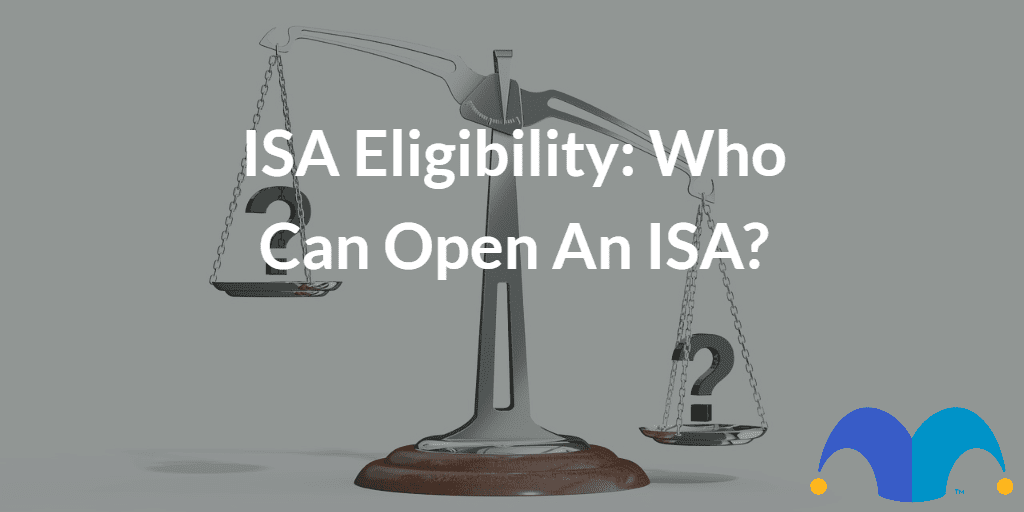So, you’ve heard about the tax benefits of an ISA and are thinking of opening one. But you don’t know who exactly is eligible or even what you need to do to open one. We’ve got the answers to your questions.
What is an ISA?
‘ISA’ stands for Individual Savings Account. It’s a tax-free account in which gains and income are not taxed. Basically, an ISA allows you to invest a limited amount of money (up to £20,000 each tax year) in assets without having to pay tax on the profits you make.
Bear in mind, though, that tax rules can change in the future and their effects on you will depend on your individual circumstances.
There are five main types of ISAs:
Who can open an ISA?
To be eligible to subscribe to an ISA, an investor must be:
- 16 or over for a cash ISA
- 18 or over for a stocks and shares or innovative finance ISA
- 18 or over but under 40 for a Lifetime ISA
Additionally, you must be one of the following:
- A UK resident (the Channel Islands and the Isle of Man don’t count)
- A Crown employee (for example, working for a diplomatic or overseas civil service) or their spouse or civil partner if you do not live in the UK
If you have an ISA and then become a non-resident, you may retain the existing ISA but you cannot take out a new one.
Where can I open an ISA?
You can open an ISA at a wide range of institutions including:
- Banks
- Building societies
- Credit unions
- Stockbrokers
- Friendly societies
- Peer to peer lending services
- Crowdfunding companies
What do I need to open an ISA?
If you are thinking of opening an ISA, your chosen provider will provide you with detailed information on what documentation you need to open an ISA with them. At the very least, you’re likely to need:
- Proof of identity (a full UK passport or a UK photocard driving licence)
- Proof of address
- Your National Insurance number
Good for long-term, cost-conscious investors who want lots of flexibility
Interactive Investor Stocks and Shares ISA *
| Trading Commission | From £3.99‡ |
| Account Management Fee | From £4.99† |
- Pros & Cons
- Fees & Charges
Pros
- Very cheap trading costs
- Flat-rate platform fee structure
- Inclusive free trades with some plans
Cons
- No dealing fee discount for frequent trading
- Some plans can be expensive for smaller portfolios
- Limited trading tools
Interactive Investor offers three different subscription plans – these are easy to switch between at a later date, should circumstances change.
Investor Essentials plan
Platform Fees:†
Monthly subscription fee: £4.99
Equities custody charge: covered by subscription fee
Fund management charge: covered by subscription fee
Note: the ‘Investor Essentials’ plan has a £50,000 investment limit; if this is exceeded the account will automatically be upgraded to the ‘Investor’ plan.
Dealing Fees‡:
UK shares & ETFs: £3.99
US shares: £3.99
Other international shares: £9.99
UK fund trades: £3.99
Investor plan
Platform Fees:†
Monthly subscription fee: £11.99
Equities custody charge: covered by subscription fee
Fund management charge: covered by subscription fee
Dealing Fees‡:
A monthly dealing credit, worth £3.99, is included as part of the account subscription and is valid for 31 days. (Equivalent to 1 free trade per month).
Additional trades are charged as follows:
UK shares & ETFs: £3.99
US shares: £3.99
Other international shares: £9.99
UK fund trades: £3.99
Super Investor plan
Platform Fees:†
Monthly subscription fee: £19.99
Equities custody charge: covered by subscription fee
Fund management charge: covered by subscription fee
Dealing Fees‡:
A monthly dealing credit, worth £7.98, is included as part of the account subscription and is valid for 31 days. (Equivalent to 2 free trades per month).
Additional trades are charged as follows:
UK shares & ETFs: £3.99
US shares: £3.99
Other international shares: £5.99
Fund trades: £3.99
Applicable to all plans
Regular investing service: free to use (£25 minimum investment amount, no dealing fees)
Spot + FX fees: 1.5%
Telephone dealing charge: £49
Note: For UK and US trades over £100,000, and other International share trades over £25,000 additional fees and charges apply. (See the Interactive Investor website for full details.)
Can I open more than one ISA?
Yes. There’s no limit on the number of ISAs you can have overall. That said, you can only pay into one of each type of ISA in each tax year. The total amount you put in – across all ISAs – must not exceed your annual ISA allowance of £20,000.
Can I open an ISA with someone else?
No. ISAs can only be taken out by an individual. However, you can pay into someone else’s ISA (or someone can pay into yours) as a gift.
You can also open a Junior ISA for children under 18.
Can I transfer my ISA to another provider?
Yes. If you have already opened and paid into a cash ISA, for example, and see a better rate on the market, you can transfer your ISA savings to the new provider.
However, don’t simply withdraw your money or close your account entirely as then you’ll lose its tax-free status. Instead, ask your provider to arrange the transfer.
To learn more about ISAs, take a look at our top-rated stocks and shares ISAs in the UK and find a good fit for your financial needs.
The content in this article is provided for information purposes only. It is not intended to be, nor does it constitute, any form of tax advice. Readers are responsible for carrying out their own due diligence and for obtaining professional advice before making any investment decisions.

